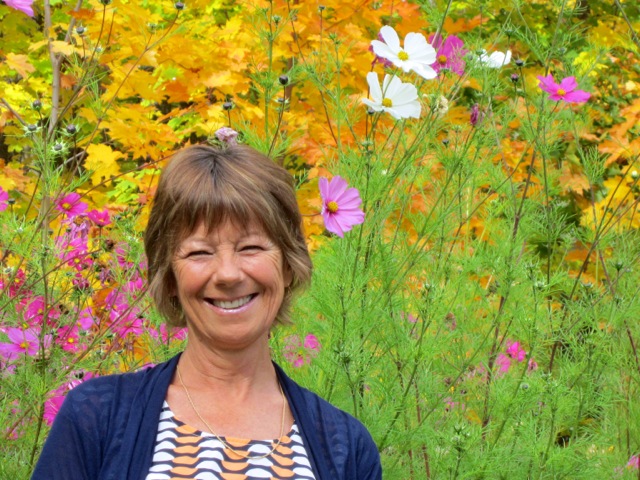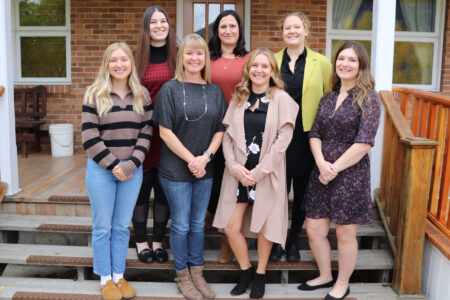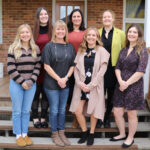6000 Rosslanders in an affordable city: Jill Spearn makes her case for the mayorship
SG: Just to start with basics, tell us what you think the role of Council is in the City.
JS: I think the role of Council is to represent the citizens of Rossland — that’s obvious, that’s why we’re elected. And I also think it is the role of Council to do the regular business of the City, for sure, be it formulating bylaws, or making sure we’re dealing with variances, and looking at policies and procedures, I think that’s really important. I know I want to strengthen that as I move forward, if elected mayor. And I think that mostly the role of Council is to make sure that the Official Community Plan, the Sustainability Plan, the guiding documents are used for decision-making on behalf of the citizens of Rossland. We are only representatives, and I know that the next Council will need to do a better job at inviting the citizens in to the process of governance.
SG: What degree of input do you think the mayor and Council should elicit from residents, and how do you think that should be done?
JS: I think that we need to take ourselves out of the Council chambers more often than we do, and I have always felt that, and in fact this Council had made a commitment to going out to the high school, or at least to some places that were public, and to conduct our business in different venues. And although I think the serious and official business of Council needs to sometimes just remain here for that formality, I also think that we can have informal sessions out in the community, which I look forward to. I mean, the “beer and ballots” event, that was a really interesting way to have up-front talk with people and citizens, and it really does lend itself to making sure that we are accountable as representatives; and I really like that, and I would do that more often, in different venues around town, where people could certainly come and talk to me one-on-one, or even have Council members, not necessarily as full Council necessarily, but out talking to people face-to-face. I also believe in more community engagement at a kind of holistic level, for example, community meetings at the Miners Hall, when issues warrant themselves to that, and I’ve had people say that they feel they haven’t had enough public input, or haven’t had the opportunity to give input on certain issues. So I am a strong believer in communication, and I feel I have great communication skills personally, and I also know that the citizens of Rossland want more input to government, and — be it the public input session at the beginning of Council, having other procedures where citizens can engage with us, and even, let’s face it, downtown one-on-one is a great way, but I think we need to allow more time for more input for citizens of Rossland.
SG: We dealt with the role of Council; now let’s go back again and talk about how the role of mayor fits into that.
JS: I’d like to give a little bit of background, about why I decided — I’ve been thinking about the mayoral position for a long time, in fact last election I had my papers filled out for both positions as well, and decided that the time wasn’t right in my life personally, and now, even though I did leave it till, some people think a little late or eleventh-hour, I was always considering it. And when the mayor decided he wasn’t going to run (for mayor) I honestly believe that choice is imperative to good democracy and so having considered it recently and in the recent past, I thought that it was a good decision — a risky proposition albeit on my part, because you only get one mayor, whereas if you run for Council your chances obviously are much higher, with six representatives. So, having said that, I’m think I’m ready, and I think I’m a good fit for Rossland. I know I’m a good fit for Rossland. And I’ve done three terms, and worked diligently, and I think I represent a good number of people in Rossland, I have been diligent in debate and moving my position if debate led me to there, to that position. I’m a leader, I’ve had a lot of leadership endeavours in my day job, whether it be with children or with adults, I’ve been acting principal of schools, I’ve been on a lot of committees as liaison, and I just think the time is right for me, Jill Spearn, to be the leader of what’s going to be a great team for the City of Rossland.
SG: Let’s talk about your qualifications, your education and experience.
JS: I’m educated, I have a university degree, a professional teaching certificate, and I have a background in both resource management and planning in my university studies. I have been, as I said, in a lot of leadership positions, with children particularly, as my girls grew up and played soccer and field hockey at all kinds of high levels, and I was always involved in managing and coaching lots of sports, in my younger days, both in my school and in community sport. Again, I spent a lot of time on the Neighbourhood of Learning Committee, and I feel that that was a real feather in my hat. It didn’t turn out the way we wanted it to, obviously, but again, as Rosslanders do we took lemons and made lemonade, by creating a different kind of school system to supplement what we have now. I think I’m a good role model, I’ve been a good role model for thirty years for kids in schools and for teachers, for that matter. I know a diversity of people in Rossland, and I think that’s important, because I am able to sit down and talk with people of all walks of life, whether it’s the less fortunate or engineers or otherwise. So, I think the time is right for me.
SG: You were alluding to the school situation. How much support do you think the City should put into the goal of maintaining K-12 here in Rossland?
JS: It was an enormous issue in Rossland, and it’s been an enormous issue, this closing of schools in the school district. There’s social, economic and environmental implications around closing schools and moving kids around and disrupting communities. For me, I know when I talk to people, I even talk to the students who go to Crowe, they’re fine, right, because kids will adapt. But I look at it more from a community, full-service perspective as a City Councillor, and potentially mayor, that we need to make sure that education and offering education from K to 12 is always available in our community. And frankly, now that we’ve been through this process, and public education has been ripped out from under our feet, literally as far as taking the grade tens, and now all the grade nines are down at Crowe or at the Seven Summits Learning Centre, I feel that as long as we maintain K-12 in Rossland, and however that looks, if the community is on board with it, which I think they are now, with the Seven Summits Learning Centre and at least we’ve got that wonderful option for the kids, they’re busting at the seams, so that says they’re successful. So what do we need to do? We need to work together, either with the school board, and I’m not afraid to do that, obviously, because I’ve been in many situations where I’ve had to be on the side of the Neighbourhood of Learning committee, and try to convince the school board of what we want, as a city and as a community. I’m not afraid to have those conversations with them if there ever is the opportunity to do so, to talk about, what can we do now that we’ve got this Learning Centre, and how can you benefit and how can we benefit, because it’s not going to go backwards. In my mind. And we’re not going to get K-12 in Rossland, and that saddens me in a personal way, but in a professional way, I go, you know what, we’ve done a really good job in Rossland to keep K-12. And yes, financially, it’s not our mandate, it’s a provincial mandate, but at the same time, it’s in the OCP, we’re spent citizens’ money — $15,000 a year on the Neighbourhood of Learning Committee, and it was worth every penny. So if Council deems it, and the community deems that school as being a huge priority for a full-service community, and to address K-12 in Rossland, then yes, I’m willing to have those conversations about funding, for sure.
SG: Thanks, Jill. Earlier on, we talked about how Council could accept input from citizens, but we didn’t get to the question of how Council should communicate to citizens; how, and how much?
JS: Certainly we need to put out some kind of regular newsletter. From Council. Not written by staff — from Council. And if the mayor needs to co-ordinate that, and write it, for that matter, that’s one of the things I can do , I can read and write well, and I’m happy to do that on behalf of everybody on Council, giving input to put out a newsletter about the important things for us as Council, but for the community as well. With objective information, and with queries answered, et cetera. So, newsletters for sure. I hope that people will feel welcome here in City Hall, in the Council chambers, and I know a lot of people say they’re not comfortable here, I think that if we set a tone of respect, and have a process that efficient and effective and invites people to give up public input, then through this venue as well, where we sit on a regular basis, people should be welcome to come and listen and feel comfortable here. Other ways, as I stated earlier, getting out of the chamber and having meaningful once-a-month “come and talk to Council”, or the mayor, either-or, and I also said community meetings, and how often — that depends on where we’re at with whatever the issues are. And if people want to talk about broadband again, in a community forum, before we decide that that’s what we want to move forward with as an initiative, then to me that’s an easy thing. Just go to the Miners Hall, have Council there, or representatives of the committee, or however you want to structure it. And let’s have the conversation. And let’s have respectful conversations, and there’s ways, obviously, processes to do so. You know, my telephone is always there, my e-mail is always there — I believe people want to network with me social media-wise, it doesn’t matter to me, but I want people to understand that I take pride in being a communicator and I really think that it’s critical to every kind of process, or every board — yeah; I’m welcoming that.
SG: How do you think the relationship should work between the mayor and Council on one side, and the CAO and staff on the other?
JS: We know that the CAO is technically the one staff member, and that as a mayor, you work very closely with the CAO, and your job is to do so. And I know that I am elected to represent the community of Rossland, and that needs to be fundamentally, foremost on your mind, as mayor. And sometimes, you’re the liaison between the community and staff, and you’re the liaison between community and Council, right, so you’re playing these multi-faceted roles, which I’m not afraid of because I do that all the time in my life. But I also know that as mayor, you’re elected to represent the community. And if you have to make tough decisions, or you have to set up agendas that benefit the City, and the taxpayers, then I’m prepared to do that, and I want to have positive relationships in City Hall. And you have the ability as mayor to make sure that you’re bringing out the best in people, and I’m good at that, and I’m also process-oriented which means that there will be clear process and change within Council itself, which will also flow over and influence what goes on in City Hall. But I think the relationships have to be clear, and the roles have to be clear, of both mayor and CAO and I certainly know that this Council is going to take the power back. We’re not going to delegate power. I’m sure that, hopefully, every candidate feels that way. And we’ve learned from that, right? The power needs to stay with Council, for sure.
SG: What are your thoughts on how to resolve our current CAO dilemma?
JS: We need to resolve it, and I know it’s a conversation in the community. Our current CAO is still in a contract with the City of Rossland, and I think we need to look at that in camera, as a Council, right from the get-go, and see where we want to proceed. Our current CAO can come back if and when she’s well enough to do so.
SG: What are your thoughts on bylaw enforcement, given that we don’t seem to have much of it these days?
JS: It’s minimal, I know. And it’s a conundrum. It’s a small town, and a fair number of bylaws — the no-idling bylaw, the burning bylaw, the Good Neighbour bylaw — we’ve got all these bylaws, and I guess what I like to believe is that if you have the bylaws there, and people know about them, or they’re readily available, and you remind people about certain bylaws, which needs to be done, communicated, believe me — some people don’t even know; we’ve got a burning bylaw, and they’re burning, and they don’t even know; in all fairness, we need to communicate that better. We need to communicate policy better, too. If I’m elected, it will be a high priority to make sure that every Council member knows those policies and understands them, and not just “here, read your policy book”, but clearly we have discussions about policies, go through that binder again, and see if we need to add some, or delete some, or change some, and what’s the reason for doing that. I feel really strongly about that — those are the bare bones of understanding what our city’s about. We did get rid of a number (of policies) and there were reasons for that. And bylaw enforcement — yes, it is a conundrum. So you pay someone to drive around, I mean, ever since Wayne — he was the best. He had a presence, and he understood Rossland. I would be in favour of having more bylaw enforcement presence, without increasing the cost to the City. Within that function right now, she needs to be out there — I agree, we could be more present in our bylaw enforcement. But I don’t want it to cost more.
SG: I watch Council meetings and see how Council goes through its business, and it seems to me that there is so little time for Council to have fulsome discussion on important matters. Do you have any thoughts on that?
JS: Yes, I do. I know that if I’m running the meeting , as mayor, I’m going to try to be as efficient as possible, and then you have to be very adaptable to realize when discussion needs to ensue, and when debate is worthwhile, and when things are being added to the conversation, or it happens to be a passionate topic that people feel strongly about, and allow them that time. I feel very strongly about that. And I know that you can’t have meetings running until midnight or 11:00 at night, even though they do sometimes, if you want people to be, firstly, effective, and really coming to the table enthusiastic. I know ways to keep things moving. And as far as understanding the policies, and the reports that come from staff, and all of the pre-writing that we can read, that needs to be very well dispersed in a clear manner so that Council comes really prepared. And then we don’t have to waste time on questions, like I didn’t understand this or that report, or you just send it back. You talk about staff, about CAO and mayor working together, one of my jobs would be to make sure that the way that agendas and information is presented — maybe that’s going to change somewhat. Maybe there’s going to be more information going into the information package, and less at the Council meeting. There’s ways to improve, for sure. But I agree that meaningful debate is worth meaningful debate.
SG: I noticed at the last meeting, quite a bit of time was spend on a signage issue, and the design review guidelines. There seemed to be a bit of a divide between Councillors who thought that the guidelines are fine as they are and should be applied strictly, and others who thought that they should be reviewed to ensure that they are supportive enough of our businesses.
JS: As times change, as cities evolve — small or not — you need to make sure that your guiding documents, and the design review guidelines in this case, are staying true to those changes, as well as true to what we want our community to look and feel like. And I have great respect for the design review committee, and the people who take time to go to those meetings, and make recommendations to Council, but, you know, their role is to recommend, or not, to Council —
SG: And they’re bound by those guidelines.
JS: Exactly. So when you have even two or three Councillors, saying, you know, maybe we need to look and review those guidelines, as we said at Council, I think that’s good. It means that we’re not stuck, and we’re not stagnant. It means that we know how to move forward with the growth of our city, and to say, “Hey, Sourdough Alley, interesting, it’s developing, how exciting!” But how do these design review guidelines put more onus on businesses, or change the way we’re going to look at signage, or the downtown core — yeah, I think it’s time for that conversation.
SG: Would you be involving the business people in the discussion, or just the design review panel?
JS: I’d say, involve — via the Chamber or not — the downtown business owners to give their input, absolutely. They’re the ones on the street every day, and even the comments about the sandwich boards, and you know I brought that up months ago, saying, OK, how do these fit in? You know, we’ve got this harmonized kind of theme in our town, and I like that, but I’m also not afraid to step outside the box a little bit, and say, let’s take a little bit of risk. I’m a little bit modern, I appreciate heritage and tradition, but I’m also a modern thinker and I like to make sure that we’re not staying stuck.
SG: A local person wrote a very thoughtful pre-election piece on FaceBook, and he gave examples before stating his concern that “both these candidates (Jill Spearn and Kathy Moore) might be prone to perpetuating the kind of behaviour that has darkened our Council chambers for so many years.” How do you think you could avoid manifestations of what I’m going to call “primate behaviour”?
JS: I think that Council, at the get-go — and I mean for the first few months — we usually go through a strategic planning session, to set up our strategic goals. I think even prior to that, process of Council — the “how” business of how we’re going to conduct ourselves — what we really need to do is go through a process with someone who is versed in bringing the best out in boards or groups about how we’re going to proceed, and what is our process going to be? And have that as a sort of over-arching, guiding process because when we get into hard debates, we don’t want to default into primate behaviour, as you called it, Sara. So what I think we need to look at what are the guiding principles we’re going to adhere to as a Council — how are we going to conduct ourselves? And look at the wants and needs, and the priorities we come up with, which is the strategic planning aspect, but even more than that, what’s the process that’s going to envelop how we proceed? And I think if we can nail that, we’re going to be so much more efficient. So that answers part of the other question you asked me. Whether we have to have charts, visuals, around the Council chambers to remind us, as visual cues, where are we at with this process that we’ve adopted as a group? And we can call it “Charter of Rossland Council” or whatever we want to call it, but I think that if we nail that at the beginning, and have help with getting that down pat, and I don’t mean airy-fairy anything, I mean a real, meaningful process, that process itself will not be devoid of all our guiding documents, our OCP and our SSP and everything else we’ve got, you know, our bylaws and our rules. It just sets the tone, it sets the process, and if we start to veer or move away from it, we bring ourselves back to it. And I think it’s the mayor’s job to do the bringing back. And I think it’s the Council’s job to say, these are the priorities, and this is how we are going to conduct ourselves. And I’ve heard it before, and I’ve seen it before, but I haven’t actually in nine years seen it demonstrated very well, that we don’t end up in difficult debates or situations, like we have over a number of years, at certain times. So we have to understand the “how to proceed.”
SG: Do you think that a council that is going to be in place for four years should consider giving itself a performance review, after, say, the first year — and include peer review, a 360 degree performance review? Of course the review would have to be managed by a neutral third party, and be absolutely confidential.
JS: I think it’s fair enough, I don’t have a problem — every year in my job, we set goals, and we have reviews, and we look at ourselves, and how we’re conducting ourselves in our profession, and I don’t think that’s harmful in any way. As long as it is process-driven. I honestly don’t have a problem with that if it moves us into places for the betterment of each Councillor, and the mayor, and staff, and it allows us to have better working relations, and getting business done more effectively and more efficiently and more representative of the community. I guess my worry about those kinds of things is that it not get down to people picking on other people, so it’s about the issues, and how we’re dealing with the issues on Council, not about particular people. Hard on issues.
(Sara related a lengthy example of the benefits of an annual “360” performance review on the Mountain Equipment Co-op board, and how it was done, and how it helped not only individual board members to understand how their behaviours were perceived by others, and how to improve them, but also helped the board as whole to function better.)
JS: I’ve watched, in this chamber, people who bring out the worst in each other. I’ve observed it. And, phew — I don’t want to bring out the worst in people. I want to bring out the best in people. But to answer your question; if something becomes — if the system is broken, or things aren’t functioning in the way that we know, especially now we know in this chamber, then I’d be the first one to say, OK, we need an observation, and we need some input, and it’s going to better everybody here, every single person can better themselves in some way, and let’s just take a little look and see how everyone is doing. Absolutely. I have no problem with that at all.
SG: I have seen that the 360 performance review is useful even when there’s nothing “broken”. Even when everything is going along fine, it helps people sharpen their performance.
JS: Oh, I can see doing an annual one. If it’s built into the expectations of what we do here as business, then there’s no reason to be afraid of it. Yeah, we should have done that a long time ago in here. I’ve sat through three different councils now, and honestly, the performance review idea, had we ventured that way a long time ago, things could have been a lot different here in the chamber itself. I’m good on all that kind of reflection. I make kids reflect every day at school on how they’re doing. Here we are, here is what we’re doing, how are we moving, where are we showing growth? As long as we’re always showing growth, in what we do as people, that’s exciting. The older I get, the more mature I get, I’m always looking for some kind of challenge that moves me forward, in a positive way, and you know, I think running for the position of mayor is an example of that.
SG: My last question: is there anything else you’d like everyone to know about you, your views, your priorities?
JS: I know that there has been a lot of interest in the financial aspects of the City of Rossland, and how we’re doing, and one thing I can say about the whole Columbia and Washington revitalization project, which was huge for Rossland; is that there were times when we weren’t getting enough reporting and financial information. It’s the past now; but what we did do, and we did it right, we told people that taxes would go up between 75 and 300 dollars per household, based on what we knew about the millions of dollars in the project, the revenue that we were going to get from the Ministry of Transportation, and any reserves. And we didn’t get the grants that we were hoping for, and I want to say something about grants before we’re done. But having said that, we did stick to what we told the taxpayers. And I think we did a good job. And I think that, we’ve extended it out for thirty years, because that makes sense for our community, today and tomorrow, and I said that at Council and was in favour of that. So that I ‘d like to say, that we were besoughten with these financial changes that kept going, but that happens with projects, and in the end I think we did well for the community. I’d like to say: grants, and grant-writing. I think that as a city, it needs to be a high priority. It will be Council’s decision, but I can’t see how grant-writing and someone within the City of Rossland, whether it’s someone in-house right now, or whether some way we have some kind of grant-writer, it needs to be a high priority, we have to have projects ready to go, so we need to do some more planning around finding, what are the priorities and projects, how do we get ready for grants that are going to come down, and apply for everything possible. I’m not saying we haven’t, but I think we can do better, much better in that way. The other thing is, I’d like to talk a little bit about regional co-operation and regional services. And I know that, from what I’ve observed, be it at the LCCDT (Lower Columbia Community Development Team) or just within the communities at the UBCM, just talking to mayors and councillors and people, that we’re moving closer toward further regional co-operation. and I don’t mean just because of the sewer pipe issue, but that was a small spoke in the wheel, to use an analogy for Rossland. But the time is right, right now, and I think with some of the changes that are going to occur, that we need to have more conversations about regionalization. And I honestly believe, that if we want to do due diligence for the City of Rossland, we need to make it more affordable by looking, with the region as a whole, at, is it time to start moving towards, or at least having a feasibility study around a regional municipality? We are only 20,000 plus people in this region, and we have five municipalities, and two regional areas. And, to me, when people talk about affordability in Rossland, we either find interesting new ways to increase revenue, which has always been there and not accomplished, in my mind, or we have to look at — I mean, people don’t want taxes to go up, but the costs of the City go up, a minimum of 2 percent per year, in that vicinity, and if we don’t increase revenue, and we don’t have more money coming into the City coffers, we aren’t going to have enough money for all the things — the services, and the regional expectations — so, one way to make Rossland affordable is to talk about a regional municipality, and it’s a topic that everyone veers away from. But I believe that we at least need to have the conversation. I don’t see it happening in this term, but if we can at least get on board, and have further conversation around it — all of the municipalities, not just the Beaver Valley, not just Trail and Warfield — because, I think somewhere down the line, we may even get mandated by the provincial government to go that way. I think that, less government cost, even though I am (chuckles) government, will allow for a more affordable community. And it’s time for that conversation. Which leads me to talk about the recreation issue, and the TRP (Trail Recreation Pass) in Trail. And there are still people who still constantly talk about it. And I’m willing to have that conversation, definitely, but it has to be viable for Rossland, it has to be understood that if we put money into that again, that function of the pools and the park, that it’s got to come from somewhere, that money. And let’s not fool ourselves, if it comes from somewhere else, then something has to be adjusted. So I would be willing to open up that conversation, but it definitely has to be feasible for Rossland. No two ways about it. I do support business in Rossland, and I worry about builders, developers, call them whatever you want — I worry about making it more arduous for them to conduct their business, and I really want to make sure that we’re being very cognizant of the fact that we want people building and creating economy in Rossland through many ways, but that’s one way, and it’s going slow; and it’s going slower than all those people would like. So we’ve got steady growth in Rossland, but it’s slow steady growth. And I think for me, I’d love to see this community grow to five or six thousand people, just like we’ve said in the OCP, make it more vibrant that way, more families. And having said that, I think broadband is one of those strategies for getting younger, entrepreneurial, technologically inclined people to come and live in Rossland and raise their families and support our schools and our businesses and all those things.
SG: So is broadband a priority for you?
JS: Yeah. It is, because it makes sense economically. It’s another section of infrastructure, just like trails and other infrastructure. Water lines and sewers are mandated infrastructure, and we can choose the other infrastructure that we want, to make our community stand out, technologically speaking , socially — and really, to bring more people here, is what we need. I’m not afraid of change. Throughout my whole career, I’ve never been afraid of change. I’m still going to workshops on a regular basis, to make myself more improved as far as pedagogy and teaching goes. And I like change, and change is tough, so we want to stick with our comfort zone. But I’m totally OK with uncomfortable zones, and that’s exciting. And to be forward thinking. The Visions to Actions sustainability plan was pretty forward thinking, and that wasn’t very long ago, and people still go, grrr, what’s that about. But Rossland’s been recognized for that, right, in many ways, and for the task forces and the (Sustainability) Commission, and those are the things that make me excited. It’s not the everyday kinds of routines of government business that make me excited, I mean, I’m excited to do it, I mean, I do it, right, but it’s having like that bio-char idea the other day, and I think wow, how interesting, right, and whether or not those come into fruition, or if this is the seed that grows the tree down 20 years or 80 years, still, let’s keep those open-minded conversations going with regards to our community, because we’ve got enormous, enormous, wealth in people, in human resources in Rossland, and I am a fond believer in tapping into and using committees and other structures to invite those people in. And you know I’ve been liaison for the Chamber of Commerce, I was the contact for the Sustainability Commission briefly, was on Neighbourhoods of Learning, streetscape committees … and I have one thing that’s kind of cool, I think. It ties in with the Youth Action Network, it ties in with youth and seniors, and I have really admired the Youth Action Network and the program and everything that’s gone on, and not just because it’s in Rossland, but just the whole model, I really like it and I’d like to see that be taken advantage of throughout the whole region, so within our lower Columbia area, right. But I also was thinking about, which ties in with the SSP, the intergenerational connection between seniors and youth and community. I’ve been thinking, maybe we could have a Seniors’ Action Network, so you could take the Youth Action Network model and bring it to the seniors in our community and see — because I talked to someone on the phone just this morning who said that seniors are going to Trail for certain activities and events, and I said, well, first I’d like to have a conversation about that, and why they’re going, is it for social reasons, or is it because they’re feeling that there’s not enough events and activities in our city that maybe that model, the Action Network model, could somehow be superimposed upon the seniors group and we could get something going that way. And I just thought, you know, co-ordinator, CBT funds, grant, there’s a possibility there. But even more than that, the intergenerational learning, where we are interacting our seniors with the Seven Summits Learning Centre, with the kids in the library, and — because, when we used to have the hospital, more of that went on. I worry about our elders in Rossland and we really — as a society, we really need to change that isolation of older people and bring them more into the community. We know there are some who are very engaged in the community, but I think there are many who aren’t. So I just think that everybody has something to offer, and if we could get some kind of engagement going through that … and the only other thing I’ll mention, and Kathy Moore and I both talked about this years ago, that I’d really like to see, and I’ve already talked to some youth in the community, is some kind of mirroring or shadowing of Council at certain times, how formal or informal that would look like would depend on this council, this next council, but having those youth come into this building, this setting and understand more about government through experiential education. And that’s about it!
SG: Thank you, Jill.


























